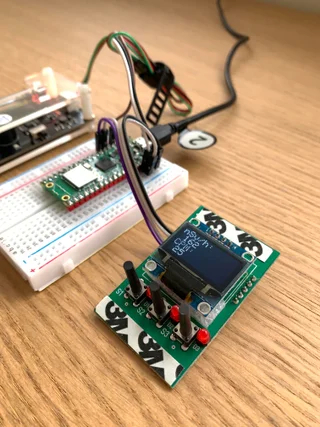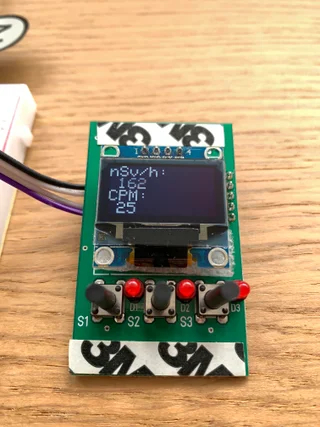Raspberry Pi Pico W Geiger Counter Logs Readings Online
These days it doesn’t take expensive hardware to create potentially life-saving technology. Using a Raspberry Pi Pico W, Dmytro Panin has developed a web enabled Geiger counter to help track ionizing radiation levels every few hours.
The Raspberry Pi Pico W is connected to an M4011 Geiger tube which serves as the sensor responsible for detecting radiation. The tube relays data to the Pico W which interprets the findings for the interface once every few hours. Panin also took the time to create a basic JSON API that can be accessed by anyone. This API provides the current values that can be relayed to an LCD screen or just checked periodically in the browser window.
Panin lives in Kyiv which isn’t very far from the Chernobyl Nuclear Power Plant outside of Pripyat, Ukraine. He decided to place the system next to his apartment window to detect any radiation level variances. This data is pushed to a server every couple of hours which outputs to the webpage so Panin can easily check the current readings while away from the setup.


The hardware for this custom Geiger counter is fairly basic. As we mentioned before, it’s using a Raspberry Pi Pico W module which is necessary for its wireless support. The radiation is detected using an M4011 tube which is the most expensive part of the operation. In addition, Panin included a breakout board with a 128 x 64 pixel OLED screen connected via I2C. This OLED module displays the current readings taken from the M4011 tube.
The Pico can be programmed using a few languages with the most popular choices being MicroPython and CircuitPython but in this case, Panin opted to use C++. According to Panin, the ionizing radiation data is measured in Nanosieverts per hour and relayed to the API.
To see this Raspberry Pi project in action or recreate one for yourself, check out the original thread shared to Twitter and be sure to follow Dmytro Panin for future Pi-powered developments.
Get Tom's Hardware's best news and in-depth reviews, straight to your inbox.

Ash Hill is a contributing writer for Tom's Hardware with a wealth of experience in the hobby electronics, 3D printing and PCs. She manages the Pi projects of the month and much of our daily Raspberry Pi reporting while also finding the best coupons and deals on all tech.